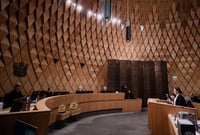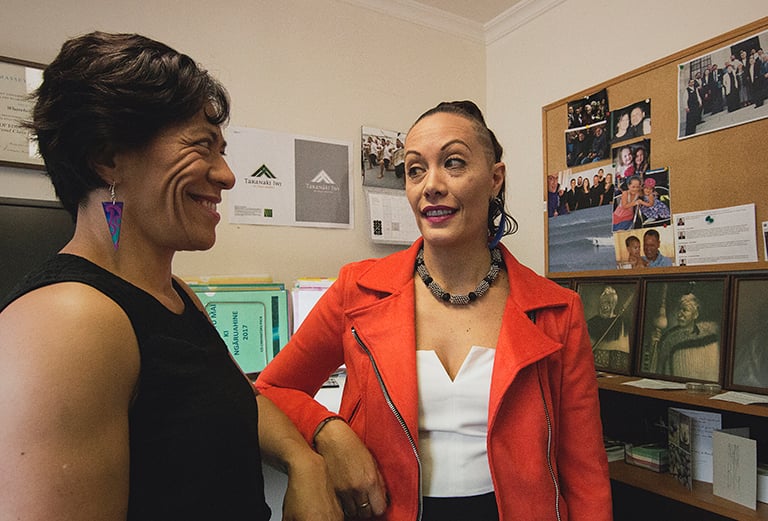Related Posts

High Court Decision Strengthens Caselaw Upholding Tikanga As Unique Source Of Law

What Are My Responsibilities As A Trustee Of A Māori Land Trust?

Tax Treatment Of Māori Authorities

Law changes for rates and Māori land

Peter Ellis appeal: treatment of tikanga Māori within our legal system
/Image%20for%20article%202.png?width=600&name=Image%20for%20article%202.png)
In September 2018, the Supreme Court addressed the issue of overlapping historical Treaty claims in the landmark case of Ngāti Whātua Ōrakei Trust v Attorney General [2018] NZSC 84.
Overlapping historical Treaty claims or cross claims occur when two or more claimant groups make claims over the same area of land (which is the subject of historical Treaty claims).
Ngāti Whātua Ōrakei sought to challenge the Crown’s proposed transfer of Crown owned commercial properties in central Auckland to Ngāti Paoa and Marutūāhu as part of their settlement packages on the basis the proposed transfers intrude on their mana whenua rights, is contrary to tikanga and a breach of their Treaty settlement already entered into with the Crown in 2011. Ngāti Whātua Ōrakei also claimed that the Crown’s existing overlapping claims policy was wrong in law.
The Crown’s proposed transfers to Ngāti Paoa and Marutūāhu were originally going to be transferred by way of administration thereby leaving it open for Ngāti Whātua Ōrakei to challenge. However, after Ngāti Whātua Ōrakei filed its initial claim in the High Court, the Minister for Treaty Negotiations advised that all transfers would be made by way of legislation.
The High Court and Court of Appeal proceedings
Ngāti Whātua Ōrakei brought judicial review proceedings challenging decisions by the Minister relating to the proposed transfer of properties to Ngāti Paoa and Marutūāhu. The Attorney-General sought to strike out the claim on the basis that Ngāti Whātua Ōrakei were attempting to directly challenge a decision to legislate thereby triggering the principle of non-interference with parliamentary proceedings. Ngāti Whātua Ōrakei’s claim was struck out in the High Court on the basis that the relief they were seeking was related to the development of legislation proposals and granting their declarations would breach the constitutional principle of non-interference by courts in parliamentary proceedings. The decision to strike out Ngāti Whātua Ōrakei’s claim was upheld by the Court of Appeal. The principle issue on appeal to the Supreme Court was whether Ngāti Whātua Ōrakei’s claim should be permitted to proceed on the basis that it is properly characterised as a claim for the recognition of various rights as opposed to a challenge to the decision to legislate.
The Supreme Court proceeding
A full-bench decision of the Supreme Court has given Ngāti Whātua Ōrakei the green light to argue their case, allowing the appeal in part, and remitting the case to the High Court for a hearing. The majority found that most of Ngāti Whātua Ōrakei’s claims involved public law decisions about what rights Ngāti Whātua Ōrakei had in relation to the land in question rather than a challenge to the legislation proposals and that such decisions can be challenged without interference with parliamentary proceedings.
The Chief Justice Sian Elias would have allowed the appeal in its entirety noting that a proposal to implement a decision through legislation did not prevent the Court making declarations as to rights as long as it did not prevent or inhibit consideration of legislation by Parliament. The Chief Justice noted that the Crown’s position could set a concerning precedent for the transfer of further land in central Auckland to other iwi in future Treaty claims, without reference or approval of Ngāti Whātua Ōrakei. Finally, the Chief Justice considered that the case had broader application to the Crown’s post-settlement obligations to iwi.
Overall, the Supreme Court decision makes it clear that Crown decisions regarding the transfer of land subject to overlapping claims as part of proposed historical Treaty claims can be judicially reviewed. Ngāti Whātua Ōrakei will need to make a decision about whether they will take the case back to the High Court.
The Crown’s overlapping claims policy has a broader application than Auckland as can be seen with the Tauranga Moana and Hauraki collective dispute in respect of overlapping claims. This judgement potentially raises some interesting issues around how far our Courts are willing to go in terms of assessing whether key Māori principles such as mana whenua, tapu and noa should guide Crown engagement with Māori and how the recognition of tikanga in the law will continue to develop.
The information in this article is for informative purposes only and should not be relied on as legal advice. Please contact one of our Te Tira Hau Ture lawyers for advice tailored to your situation.

.png)

